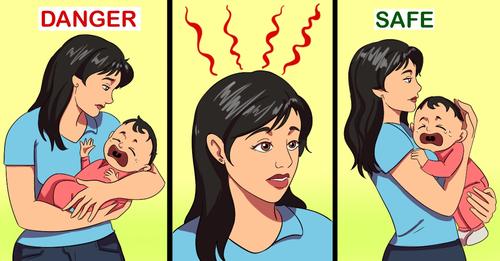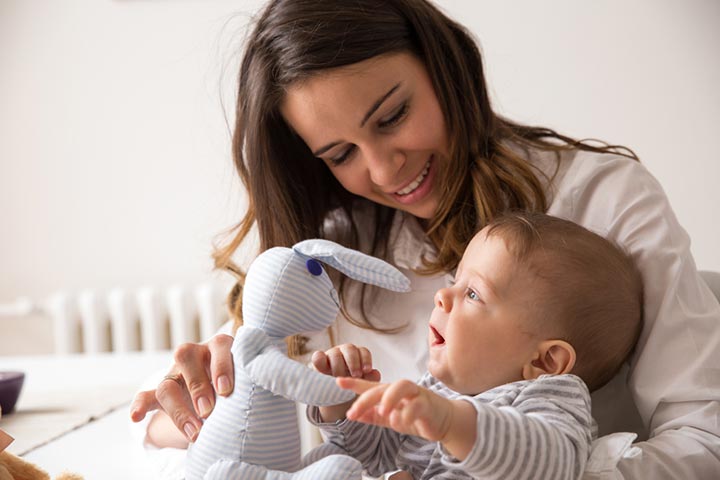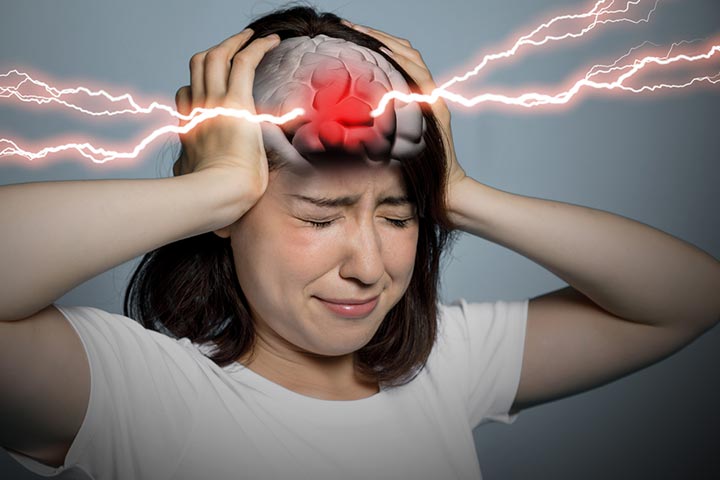
Becoming a mother is a beautiful feeling. Holding those tiny fingers of the little life you carried inside you for the first time is a once-in-a-lifetime moment. But this new chapter of motherhood brings many more changes in your body. From cravings to nausea, or a baby bump to morning sickness, an expecting woman goes through a lot in about a year. But, research shows that a woman’s brain goes through several changes after becoming a mother. (1) (2)
Pregnancy and postpartum have different impacts on the brain, from structural changes to emotional transformation. So let’s dig deeper into today’s topic and discover what happens to a mother’s brain before and after giving birth.
1. Happy Hormones Kicks In After Feeding The Baby For The First Time
Researchers studied how women’s brains responded to spending time with their newborns after giving birth, particularly to the crying and smiling of their offspring. Many happy hormones are sent to a new mother’s brain when she watches her infant grin or laughs. (3)
For instance, she begins receiving doses of dopamine, the hormone associated with rewards, and oxytocin, the “love hormone,” early during the pregnancy. Researchers say it helps new mothers better comprehend and meet their child’s demands—nursing women experience an oxytocin rush that strengthens their bonds with their infants. (4)
2. Gray Matter Shrinks Inside The Brain
Gray matter is in charge of vision, listening, processing thoughts and emotions, making decisions, and social interaction. It enables you to recognize nonverbal clues, create attachments, and comprehend how others feel. (5)
According to studies, a new mother’s brain has a reduction in gray matter in specific regions that lasts for up to two years after childbirth. Losing gray matter may sound unpleasant, but studies show that moms can feel more attachment to their newborns and experience fewer negative emotions. Thus, this alteration in gray matter causes the mother’s focus to switch from other people to her child, enabling her to fully understand them, for example, by reading their facial expressions. (6)
3. You Get Pregnancy Brain
The pregnancy brain describes the cognitive difficulties and mental confusion that some women claim to suffer during pregnancy and occasionally after giving birth (also known as “momnesia” or “baby brain”). (7) It manifests signs like:
- Inadequate Attention
- Stumblebum (A Clumsy Person)
- Difficulty In Reading
- Mixing Up Or Forgetting Names
4. Having A Baby Changes Your Thought Process
As corny as it may sound, having a child transforms your inner self and your external life. Pregnancy and postpartum don’t only change the structural anatomy of the brain, but it also makes you think differently. Having a baby might even trigger the following thoughts:
- Completely Transform Your Priorities: When you get pregnant or give birth to your little one, your priorities change drastically. Your baby becomes the only priority for a reasonable amount of time. For example, you might restrict your social outings just to be there for your baby.
- Encourage You To Eat Healthier Food: The pregnancy period teaches a valuable lesson: eating healthy food. And even after giving birth, you’ll continue following a healthy balanced diet because you’ll be aware of what wonders it can do to your health.
- Make You Understand The Importance Of Being Fit: After carrying your baby for 9 months, you finally understand the importance of having a healthy body. And after giving birth and going through immense labor, you might even start working out, as you’ll want to get in shape as soon as possible.
- Inspire You To Pursue Your Dreams: A mother can do anything, and to give her child the perfect life, she will work harder than ever. You might even think of moving out of the current city to provide your little one with every opportunity possible in the future.
- Makes You More Responsible: You might feel stressed and have memory loss, but this will not reduce your attentiveness towards your baby. You might forget about taking your keys but never forget anything related to your baby’s needs.
5. Your Brain Gets Affected By Stress And Hormonal Changes
Stress that is too much for you might damage your brain’s neurons, affecting your ability to remember things and make decisions. (8) During pregnancy, hormone levels drastically increase and vary. However, they fall rapidly after giving birth. (9) The general nursing and parenting process will cause your hormones to keep shifting if you decide to breastfeed.
When you become a mother, your brain is emotion-driven, overloading after delivery. The form of your brain is also physically altered by these hormones, which include prolactin, oxytocin, and estrogen. They rewire your brain to produce feelings of attachment by expanding and contracting certain brain regions. (10)
With so many bodily changes during pregnancy and after giving birth to your baby, you’ll be ready for any challenges or transformations that could come your way. Although changes in the brain might freak anyone out, it’s only a part of progressive development. So, in the comment section below, let us know about the changes you saw in yourself during your pregnancy and postpartum.





